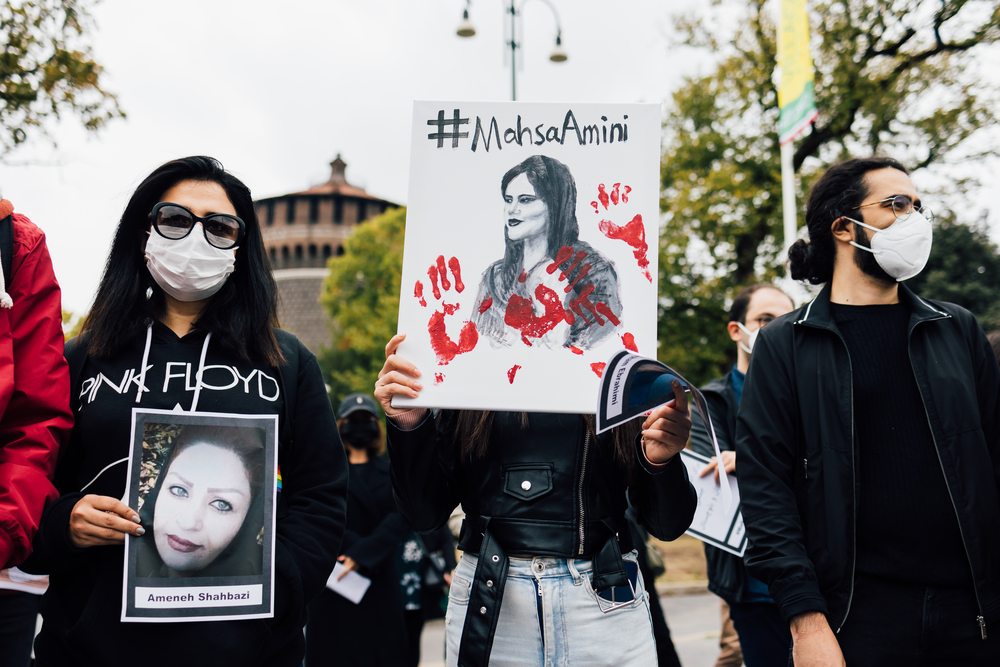The Dutch Minister of Justice, Dilan Yeşilgöz, cut her hair off on the Dutch talk show, Op1, last night in support of Iranian women’s fight against oppression.
The mandatory hijab has long been a symbol of the Iranian government’s power over women — but the unjust death of 22-year-old Mahsa Amini triggered widespread, women-led protests against the regime.
In a show of solidarity, Yeşilgöz, Op1 presenter Fidan Ekiz, and columnist Yesim Candan, all stood on live TV to snip off a chunk of their hair. ✊
Unrest in Iran
The demonstrations in Iran, sparked by the death of Mahsa Amini, who was detained by the police for allegedly wearing her hijab wrong, have left the Middle-Eastern country in turmoil.
In support of Amini and Iranian women, people are protesting around the world, ladies are demonstratively cutting off their hair, and Muslims are burning their headscarves.
A Dutch statement of support
Candan brought light to the situation on Op1 and stated that it’s time the Netherlands express support for women in Iran, writes RTL Nieuws.
“What are we going to do in the Netherlands as a statement of support for the brave women in Iran? Women who are currently giving their lives no longer have to wear a headscarf. Mahsa Amini’s Kurdish name, Jina, means life.”
READ MORE | Dutch protests for abortion rights: what’s it all about?
“Thanks to Jina, there is hope for a better life for all other oppressed women. That’s why I’m going to cut my hair as a statement of support. Who’s participating?”, Candan said on Op1.
Stay up to date with all the news in the Netherlands by following DutchReview on Facebook.



Boy Howdy, this is really going to show the leaders in Iran. They are probably wetting their abās and thobes out of fear for what this Crazy Woman is going to do next. This is the sort of utterly meaningless stunt liberals love to indulge in. Is she going to cut off her breasts to protest the “topping” of minor girls in America? Of course she won’t!
All of them are women with Turkish roots. They know the pain, suffering, how difficult it is to be a woman in Middle East. Respect.
Iran is a theocratic republic, where the state’s legal system is based on Islamic law. This is in contrast to many Western countries, which, while having a majority Christian population, operate as secular states where church and state are separate. In these Western countries, Christianity often functions more as a cultural background than as an active belief system for many individuals. Those who are devout in their faith can sometimes be labeled as extreme, not to mention the stigmatization that can occur towards devout followers of Islam. Governments, regardless of the dominant religion or culture within their society, have a significant responsibility to promote and uphold tolerance and equal rights for all their citizens, regardless of their faith or lack thereof.